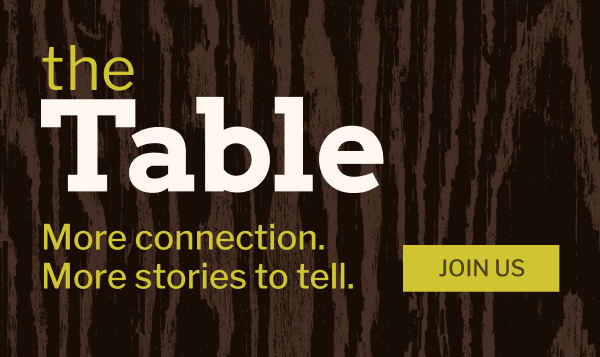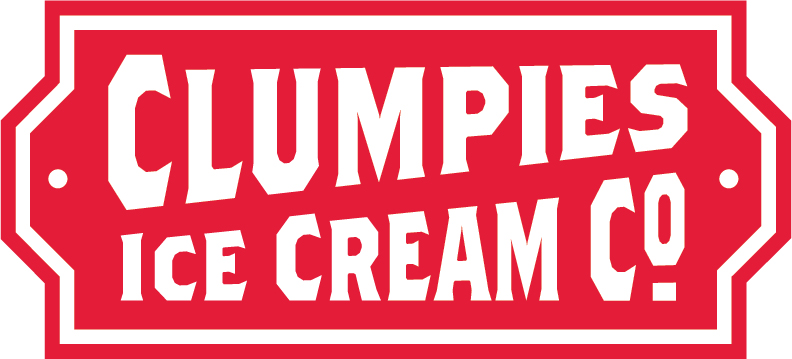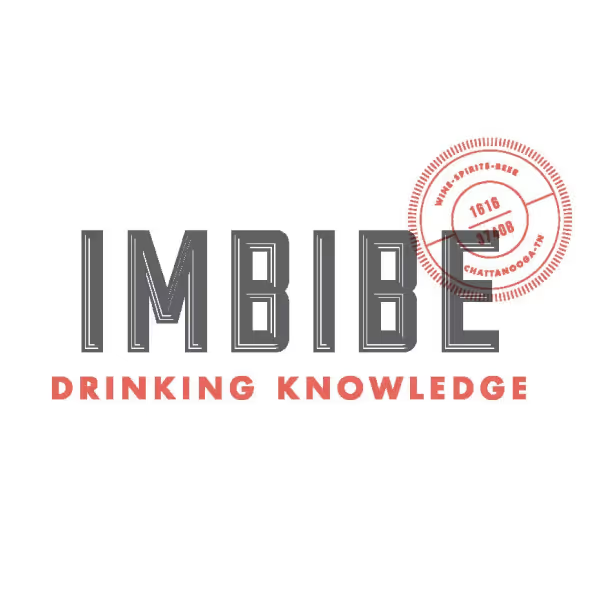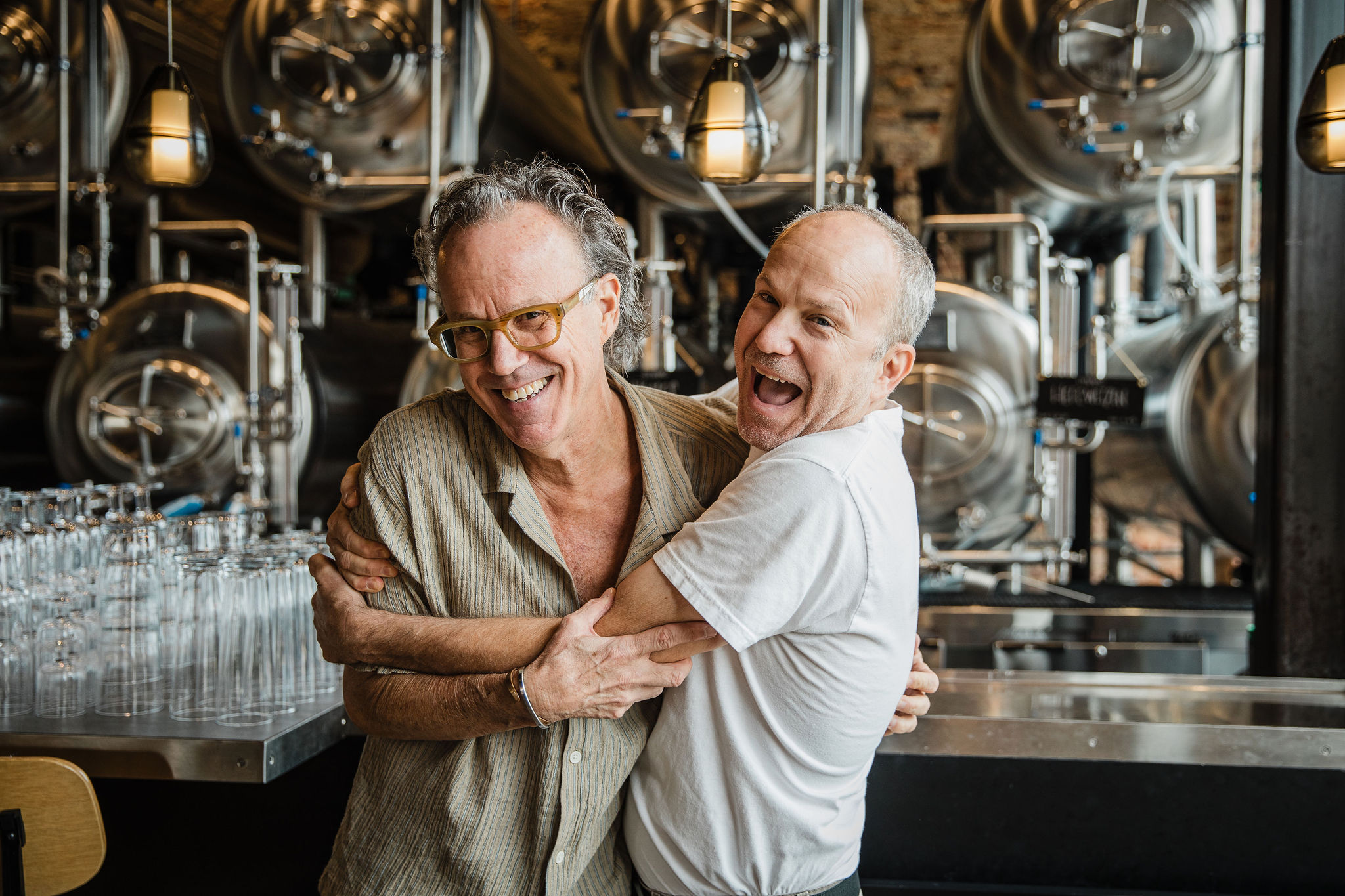
Our First Brewery, Two Brothers and the Third Place
We owe you a standing ovation, Rob and Clay.
Food as a verb thanks
for sponsoring this series

In 2021, brothers Rob and Clay Gentry opened Hello Monty, a neighborhood restaurant serving "wood-fired American fare" that also houses Dynamo Brewing, which brews beers unlike any in Tennessee.
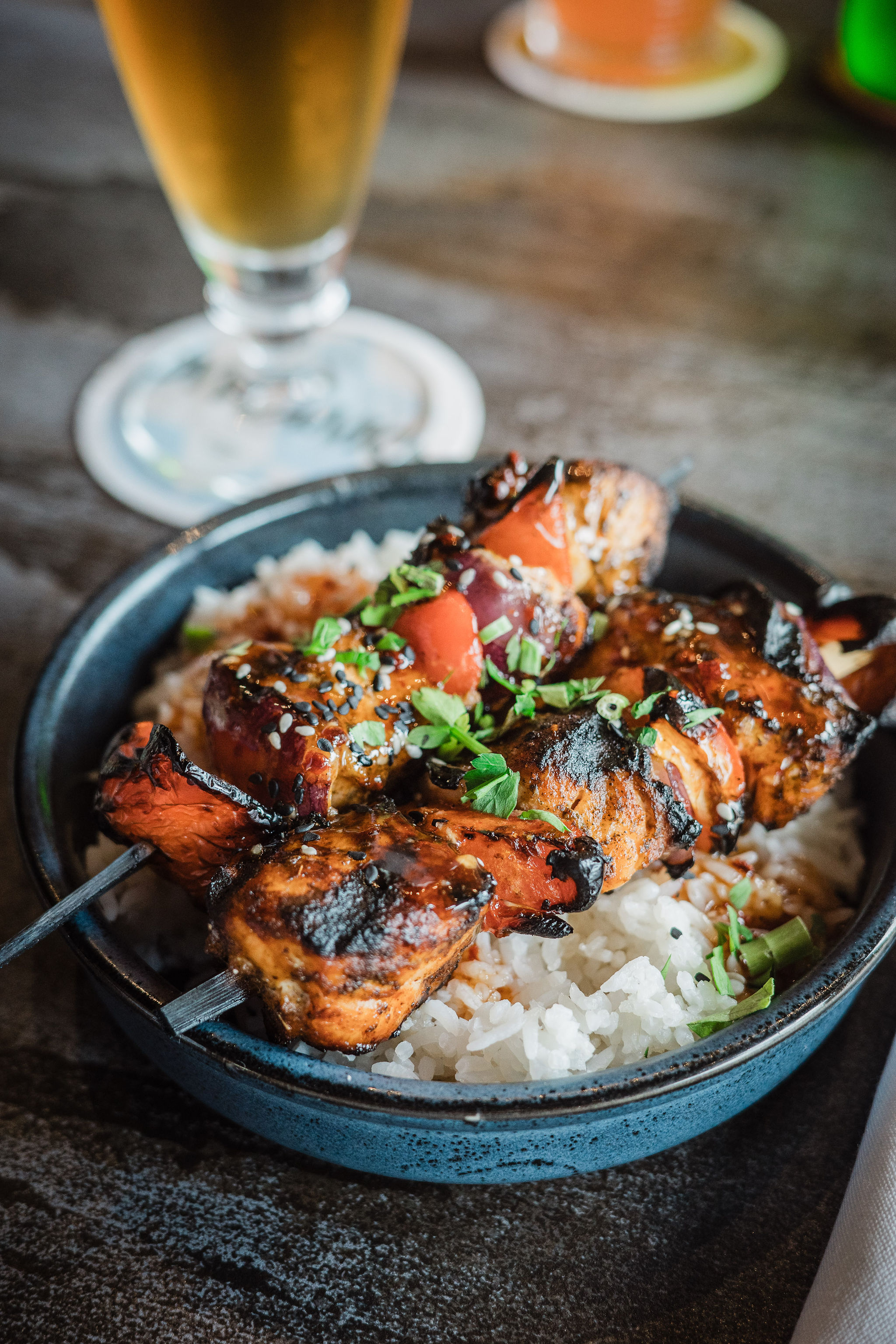
Their work was partially inspired by sociologist Ray Oldenburg, who wrote about the "vanishing Third Places."
The first place? Home. Second? Work.
But the Third Place is that precious gathering spot where informal community blooms. Think beer gardens in Germany, pubs in West Ham, bowling leagues in Hixson.
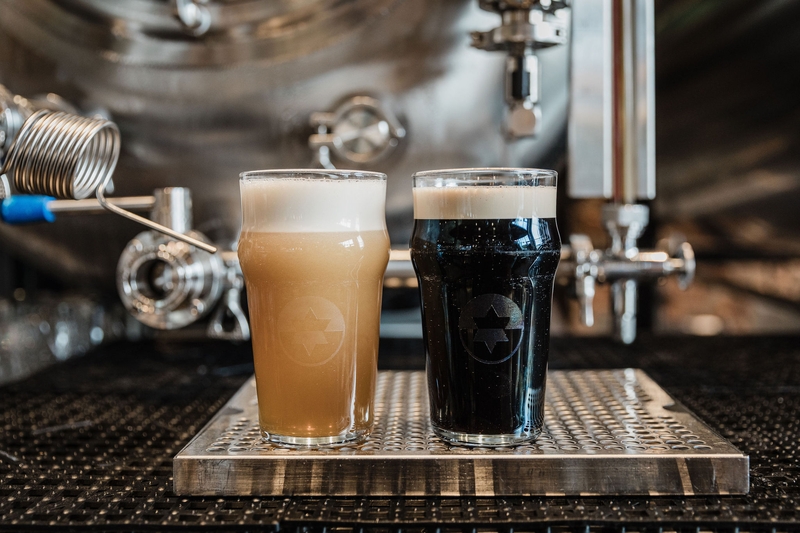
In the US, the Third Place is threatened. An over-dependency on roads and cars, a work-heavy culture, so many screens — you choose what to blame — all seem to reduce the places beautiful community can form.
So, Rob and Clay wanted to create a solution.
"Hello Monty," said Rob.
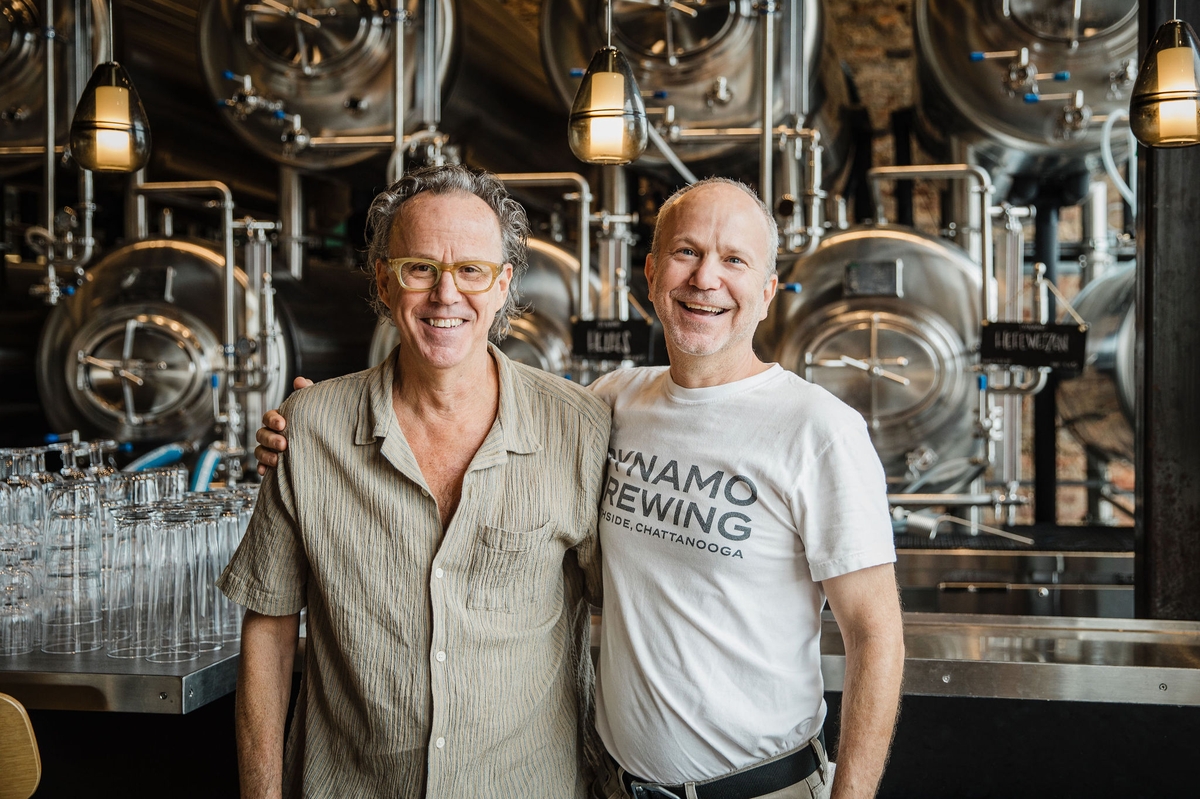
Their restaurant's on Main Street, which, a century ago, was called Montgomery Avenue, named after an eccentric trial lawyer who, as the story goes, believed that the universe would flow through Chattanooga.
Funny.
In a way, it did.
More than three decades ago, long before Hello Monty or that Third Place essay, Rob and Clay joined Tim Hennen to open a brewery that would ultimately transform our city's entire identity.
In September 1993 — 32 years ago today — Big River Grille opened in downtown Chattanooga.
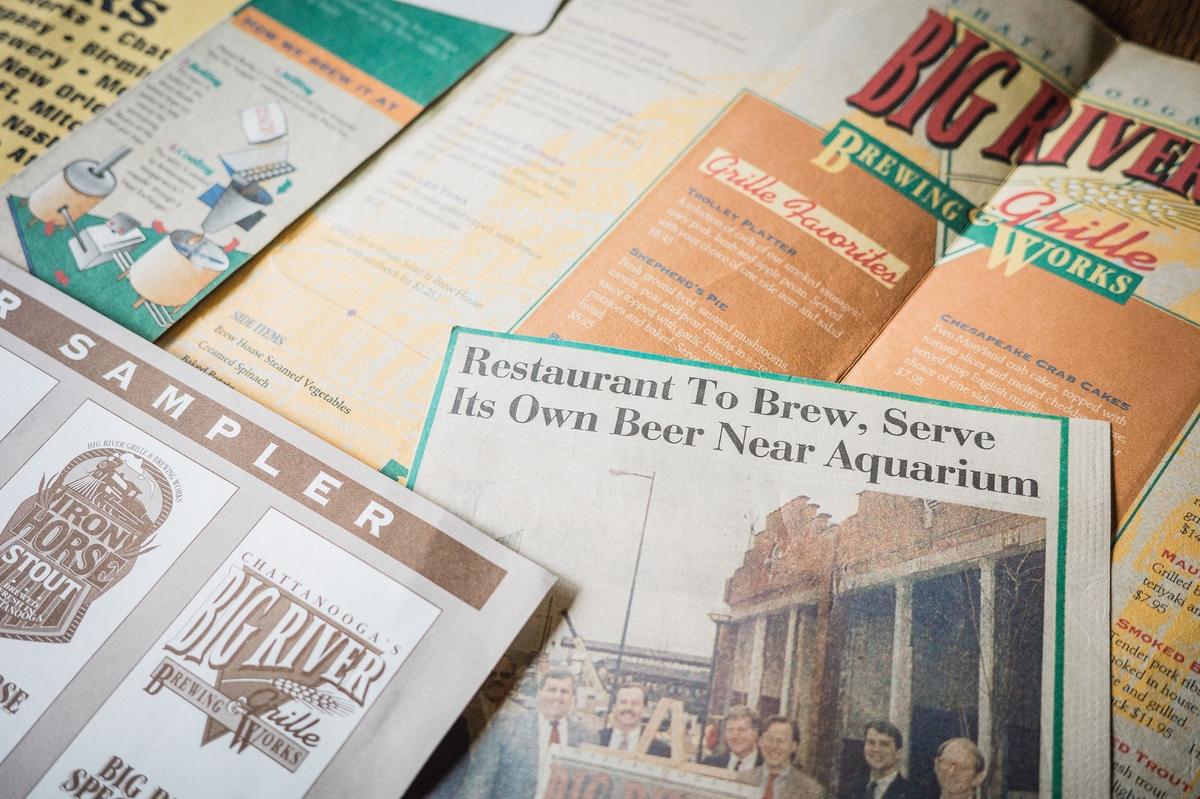
Big River became the spark that created the modern Chattanooga universe.
Today's Chattanooga flows from their original brewery. Without a brewery, there is no Outdoor City vibe. No hip riverfront. Certainly no tourism.
Today, you can't swing a keg without hitting a Chattanooga brewery, but, at the time, a hometown brewery — the first since Prohibition — was as unimaginable as, say, an aquarium opening.
Back then, we were on the cusp-edge of so much. It took a kickstart to change our city's identity — from dirty air to National Park City. You must have beer to lubricate a journey like that.
Big River was the first man through the door.
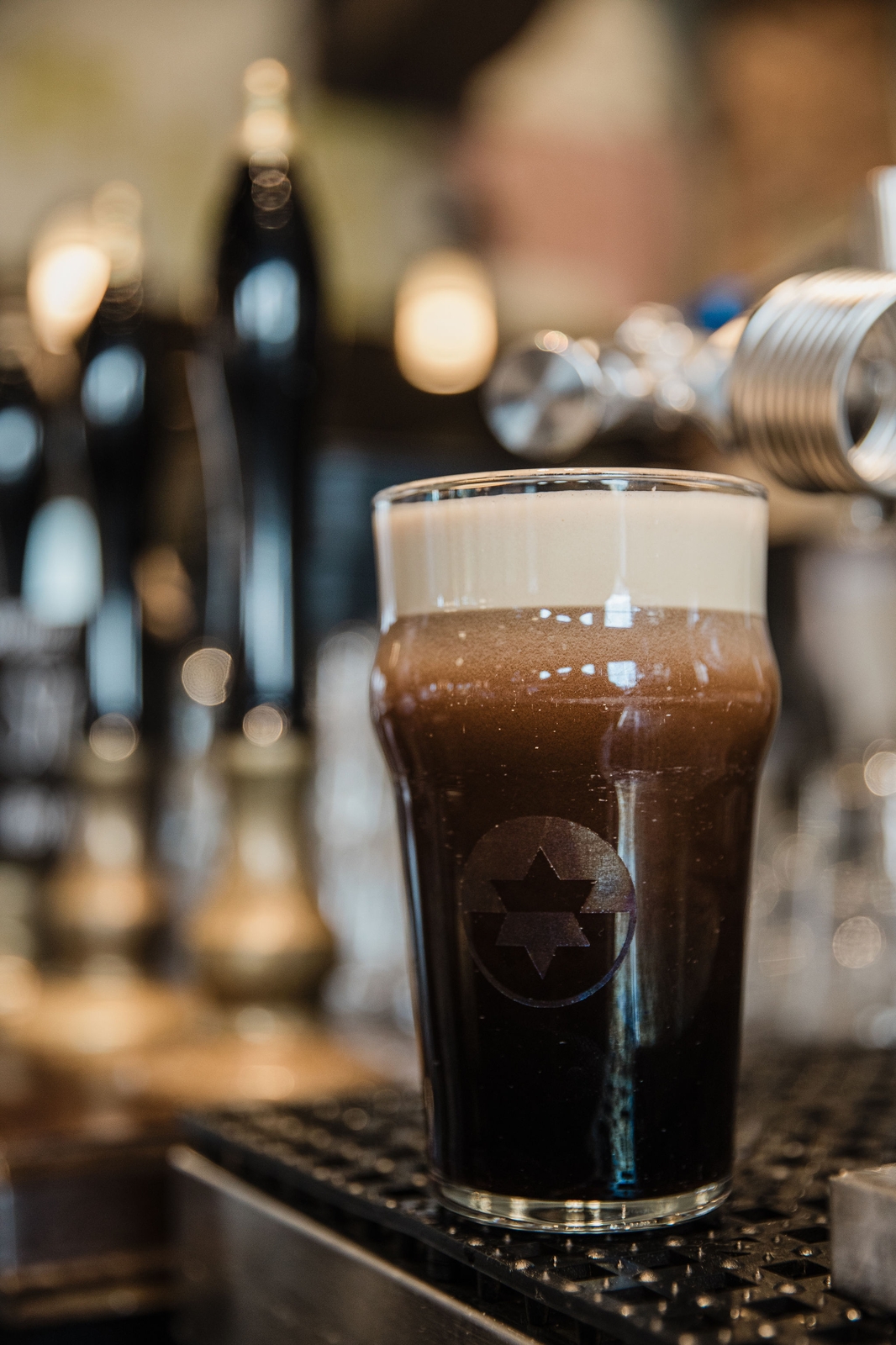
And back then? Lots of folks were coming through the door.
"I remember looking out at the bar at night," said Rob, "so full you couldn't even see."
"We caught the tiger by the tail," Clay said.
"We were right at the tip of the spear for craft beer," said Rob.
Today, three decades later, some of us still goosebump over the names: Southern Flyer. Iron Horse. Sweet Magnolia Brown.
In the '90s, we'd never had beer like this.
Clay and Rob had tapped into a whole new universe.
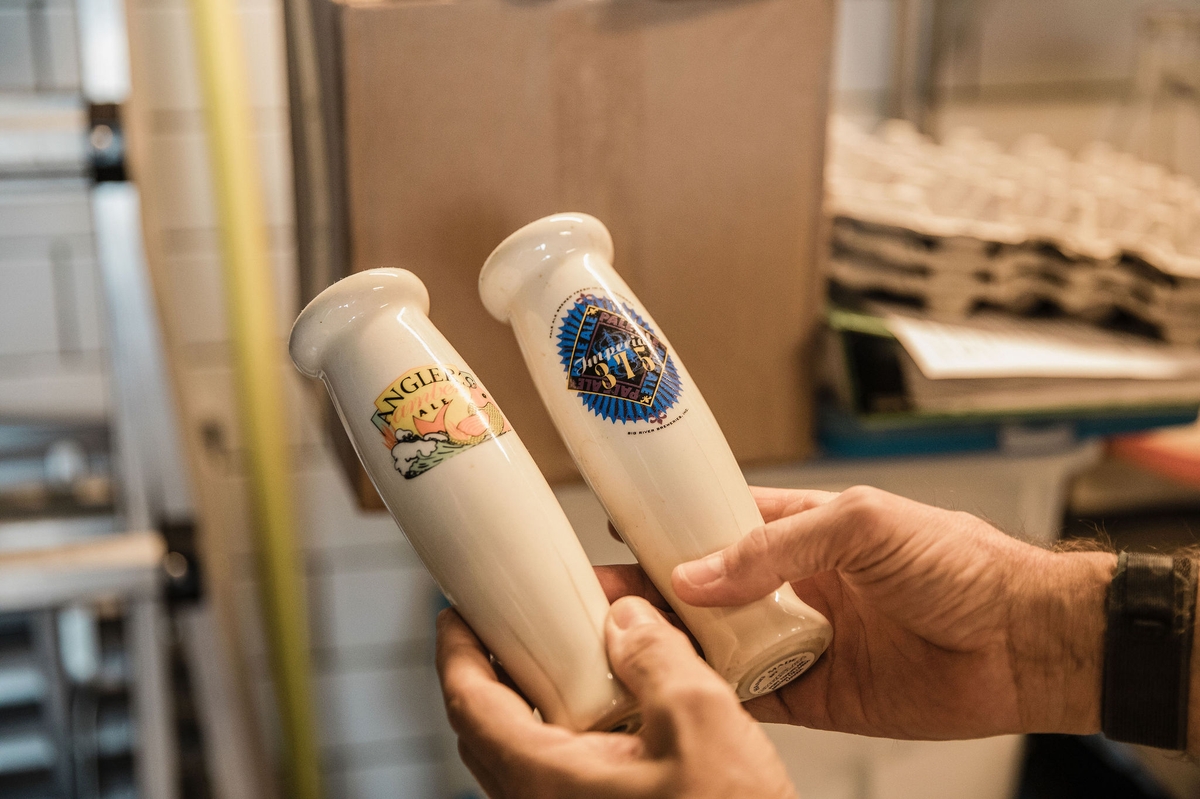
It started years before: Rob had an idea. The All-American swimmer and '81 McCallie School graduate had gone to Univ. of South Carolina where he'd discovered a bar called Goat Feathers.
It was unlike any bar he'd ever seen.
"Guinness on draft. Bass Ale on draft. The only domestic was New Amsterdam," he remembers. "Back in the day, this was very, very unusual."
He'd flirted with the Olympics Trials, but then returned to Chattanooga, began home-brewing and boldly secured the rights to a company from way back when.
"Chattanooga Brewing Company," he said.
To timestamp this for context: in 1992, the Tennessee Aquarium had just opened. Easy Seafood wouldn't open for another 13 years.
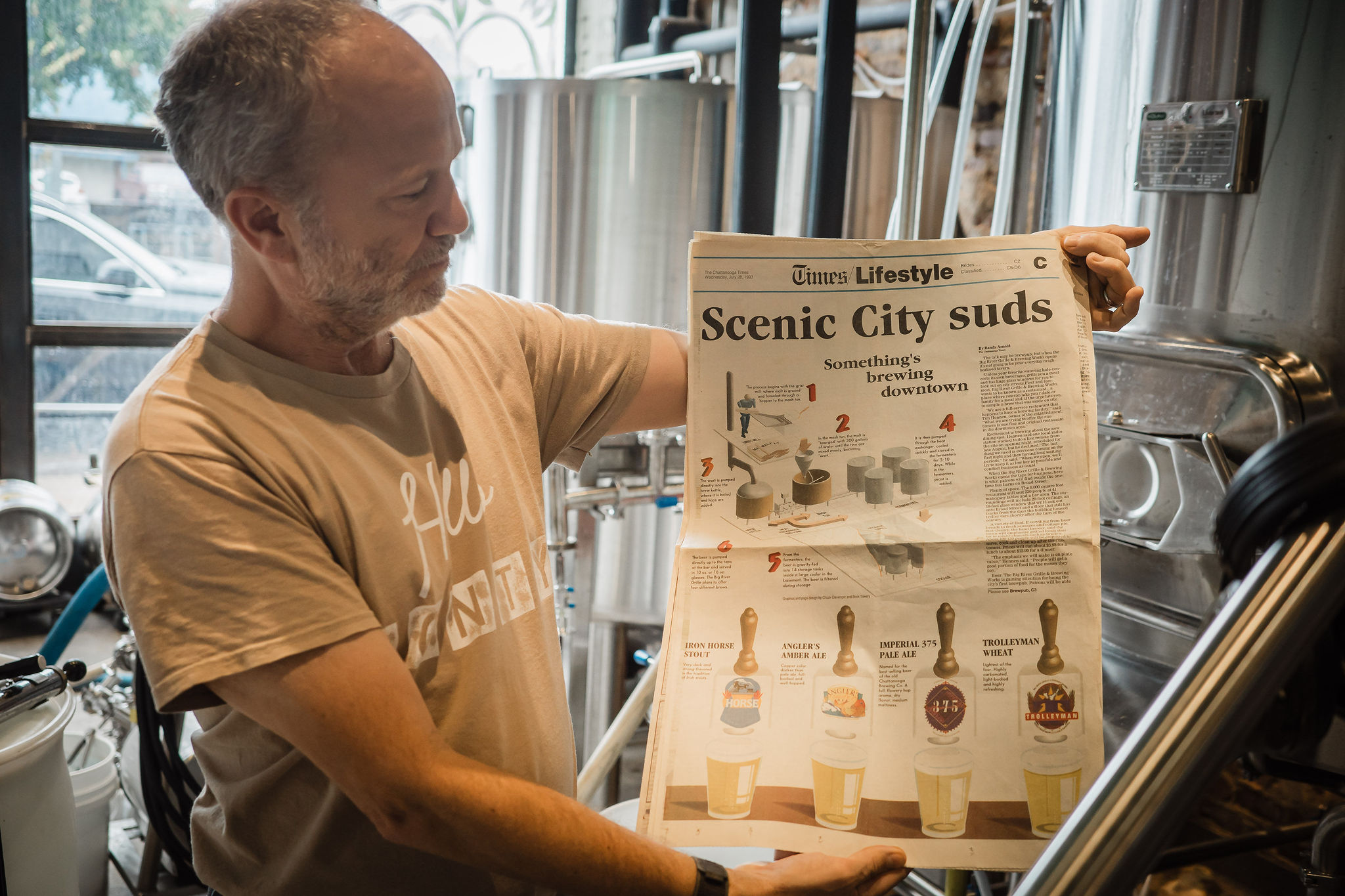
A Canadian consulting group had visited, surveyed the scene, then wrote a letter suggesting Chattanooga was ripe for a brewery.
That letter was passed to someone who passed it to someone else who passed it to Rob.
He secured just over a $1 million in investments, but needed twice that amount. After a year of trying, he came empty, and returned the money.
The story could end here. Finding another $1 million for a brewery in a 20th century-town that had never experienced one?
Rob held onto the idea.
"That's when I met Tim Hennen," he said.
Tim's a longtime restaurateur in Chattanooga known for starting places that last. (Like Yesterday's. And Hennen's.) The pair caught a Delta to Denver, found the first brewery they could — a place called Wynkoop — and sat down. Or, tried to.
"The place was packed," Rob said. "Everybody was drinking beer."
Next morning, they woke up: let's go see another one.
After the third or fourth brewery, Tim looked at Rob.
"We've got to do this," he said.
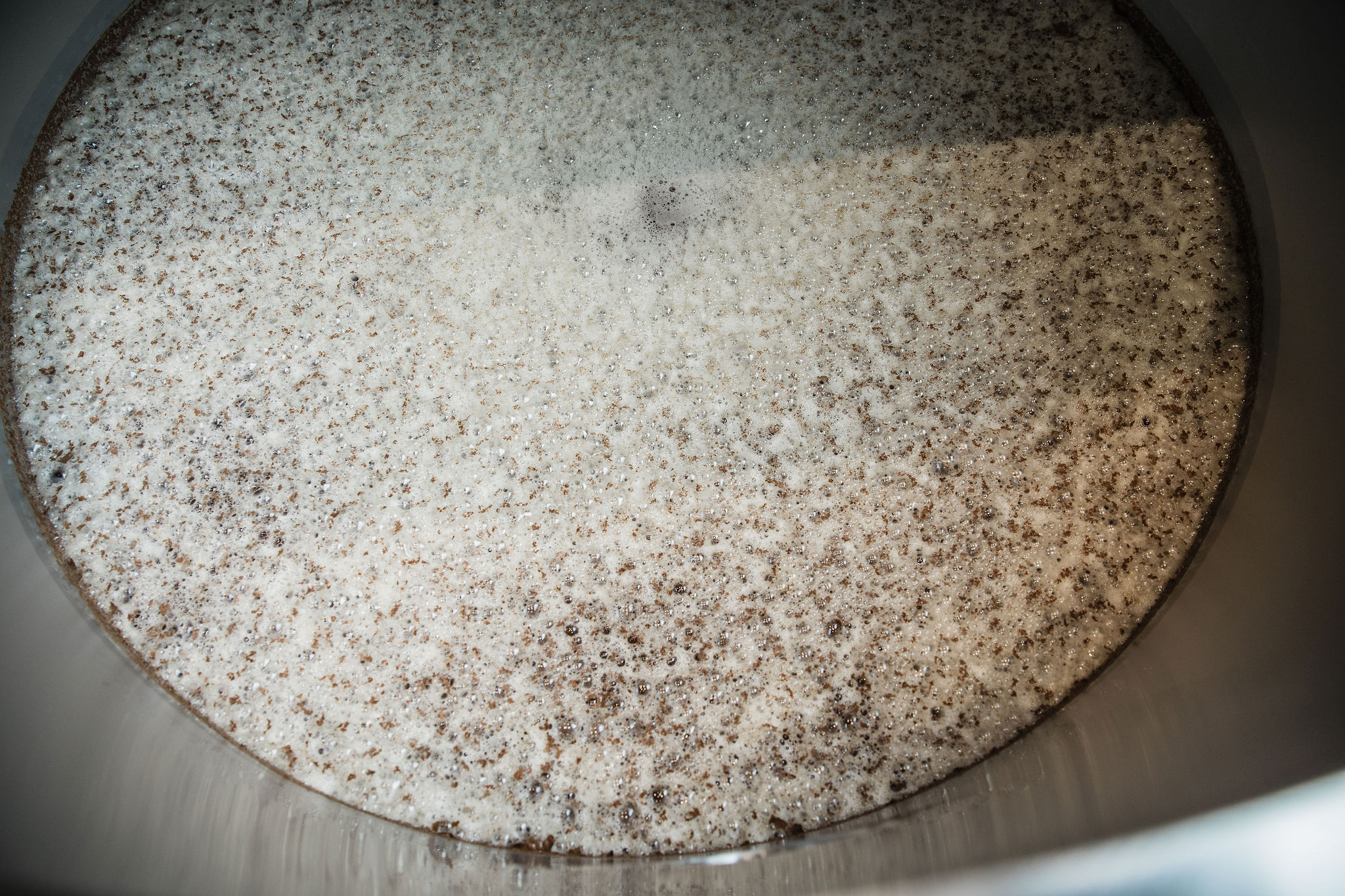
Thanks to Prohibition-era laws, restaurants could either sell beer or brew it, but not both. Sympathetic legislators would change the law, but first, they needed a vision.
Investors returned, including the pioneering heavy-hitters who would guide the transformation of our riverfront: Jack Lupton, Jon Kinsey, Sen. Ward Crutchfield who led the legislative work in Nashville.
Big River Grill opened on Broad Street in the old trolley barn in September 1993. (Clay remembers it as September 7.)
Quickly, it was a hit.
Quickly, Rob realized:
"I needed a brewer," he said. "I needed help."
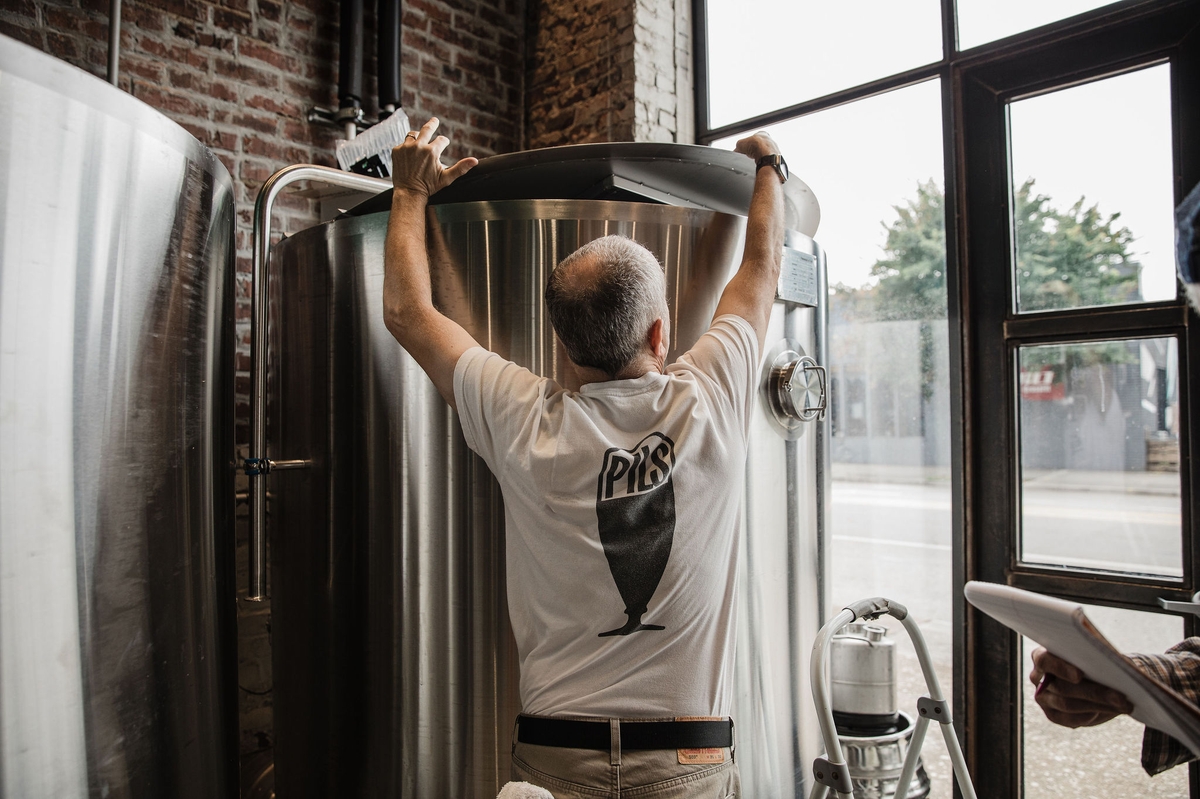
In the early '90s, Clay — Rob's younger brother by eight years — was working on an archeological dig in burial mounds in Alabama.
"I love being in the field, working with my hands, getting engaged," he said.
He came home, saw his brother up to his neck in hops, pouring more beer than he could brew.
"He was the first professional brewer since Prohibition," Clay said. "And he needed a lackey."
So, Clay pitched in.
"Next thing I know, I'm carrying bags of grain," he said.
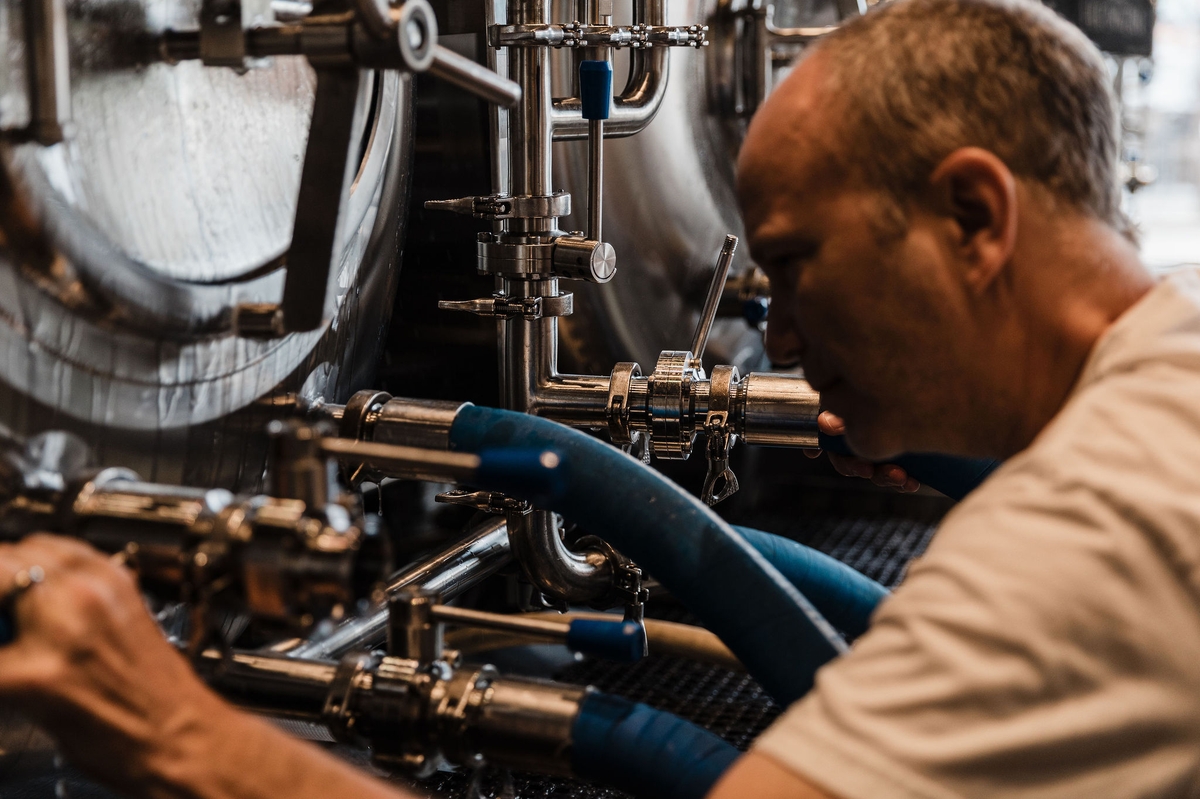
It was demanding physically and mentally, like the archeological field, minus sedentary lab work. Clay loved it.
"On top of that? The joy of sitting down with friends to have a beer," he said. "It was pretty damn special."
Their early beers were British-inspired. The menu was groundbreaking.
Iron Horse Stout. ("We never changed that recipe.") Imperial Pale Ale. ("Our best-seller.") American Flyer.
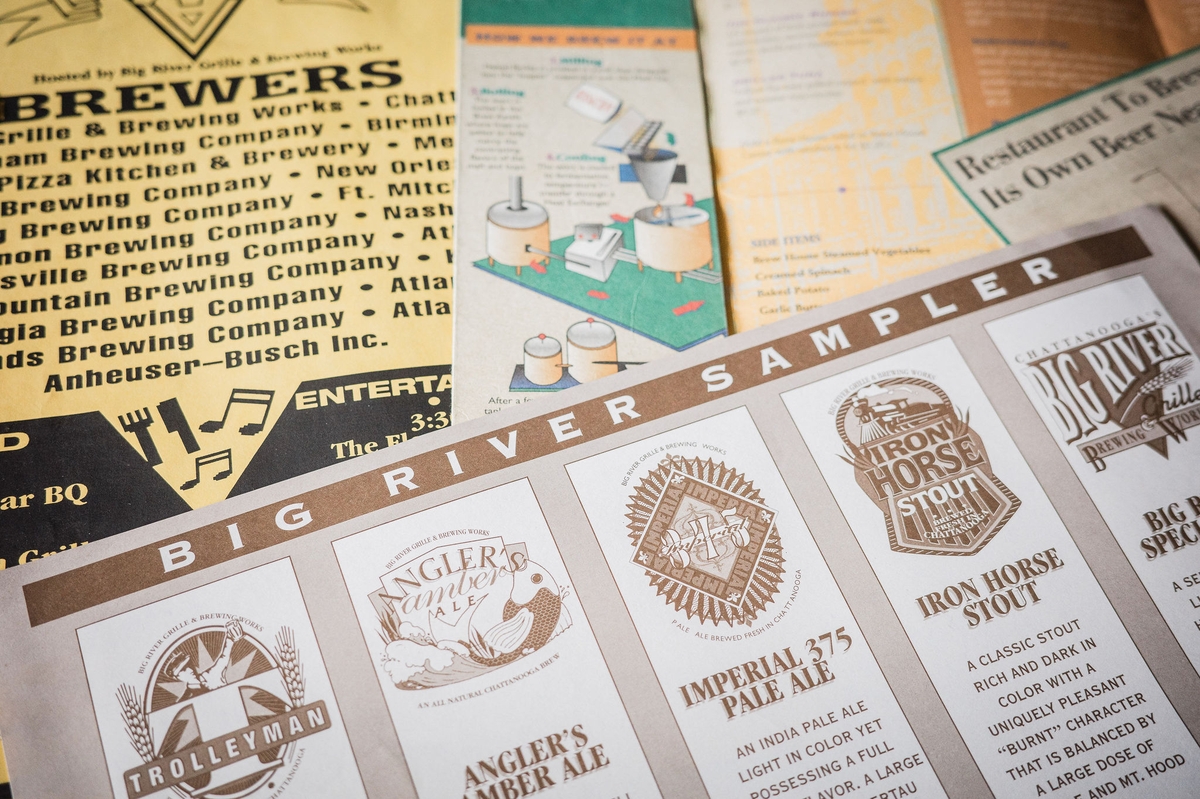
And ... Bud Lite?
"We had several spirited debates," said Rob, "over whether to include Bud and Miller Lite."
Fearing Chattanoogans wouldn't come to Big River without a Big Name option, the team included Miller and Bud on the menu.
It wouldn't matter. Their craft beer was infectious.
In the mid '90s, Rob created the Southern Brewers' Festival. After the city closed the street at night, Rob used a measuring tape to mark off 10'x10' sections for each brewer.
"I consider Rob one of the unsung heroes of the early days of the riverfront district's resurgence," said friend Rob Taylor.
Soon, the call came: we want you to open a brewery in Nashville. Then, a brewery at Disney. (Yes, Disney.)
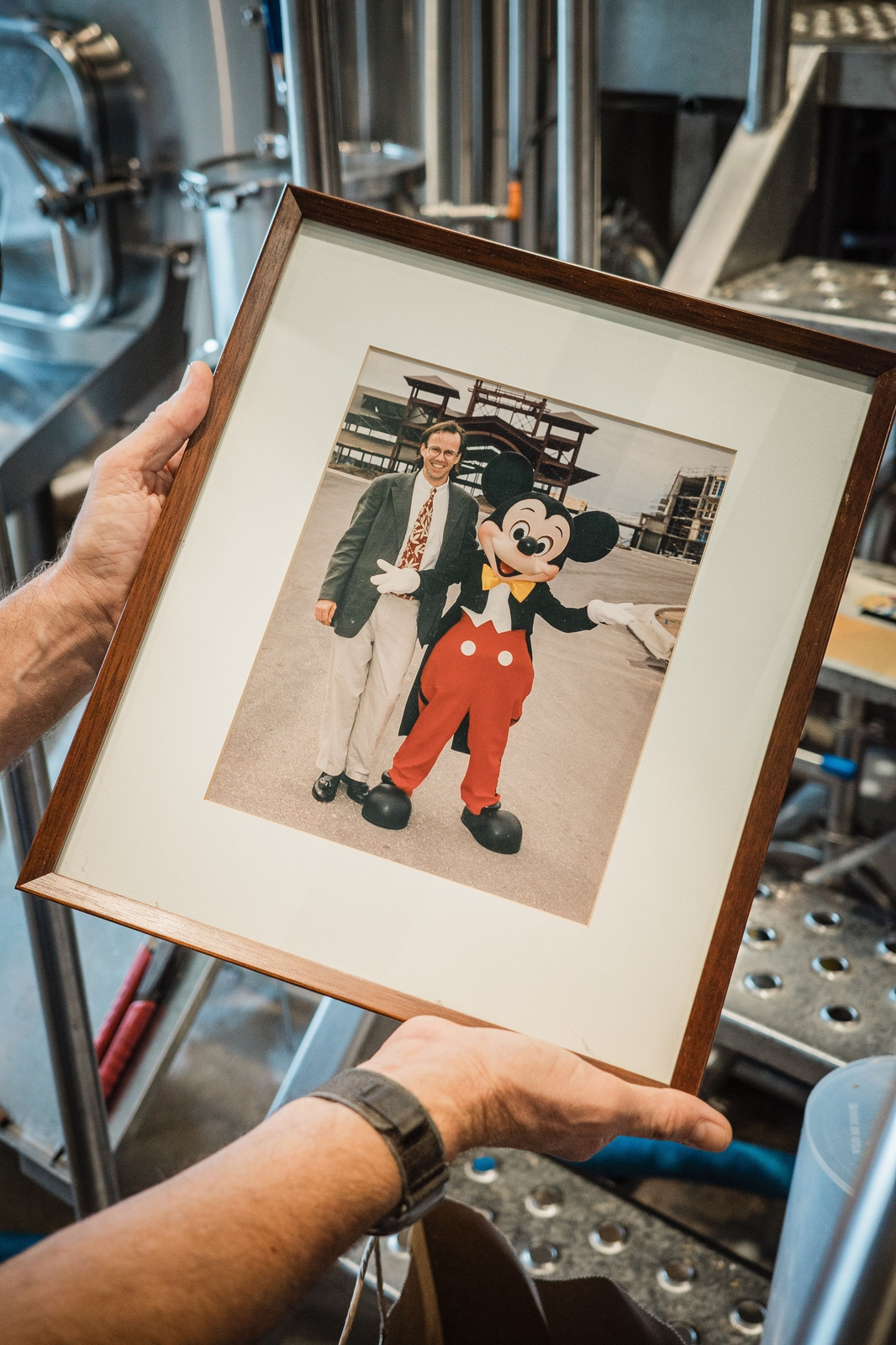
In 1999, Big River bought Gordon-Biersch, which incorporated a dining experience equal to the brewery.
Within 10 years, Rob and his partners were managing 14 breweries. Someone even suggested: we could do 50 of these.
"Your whole life changes," said Rob. "We felt like we were bulletproof."
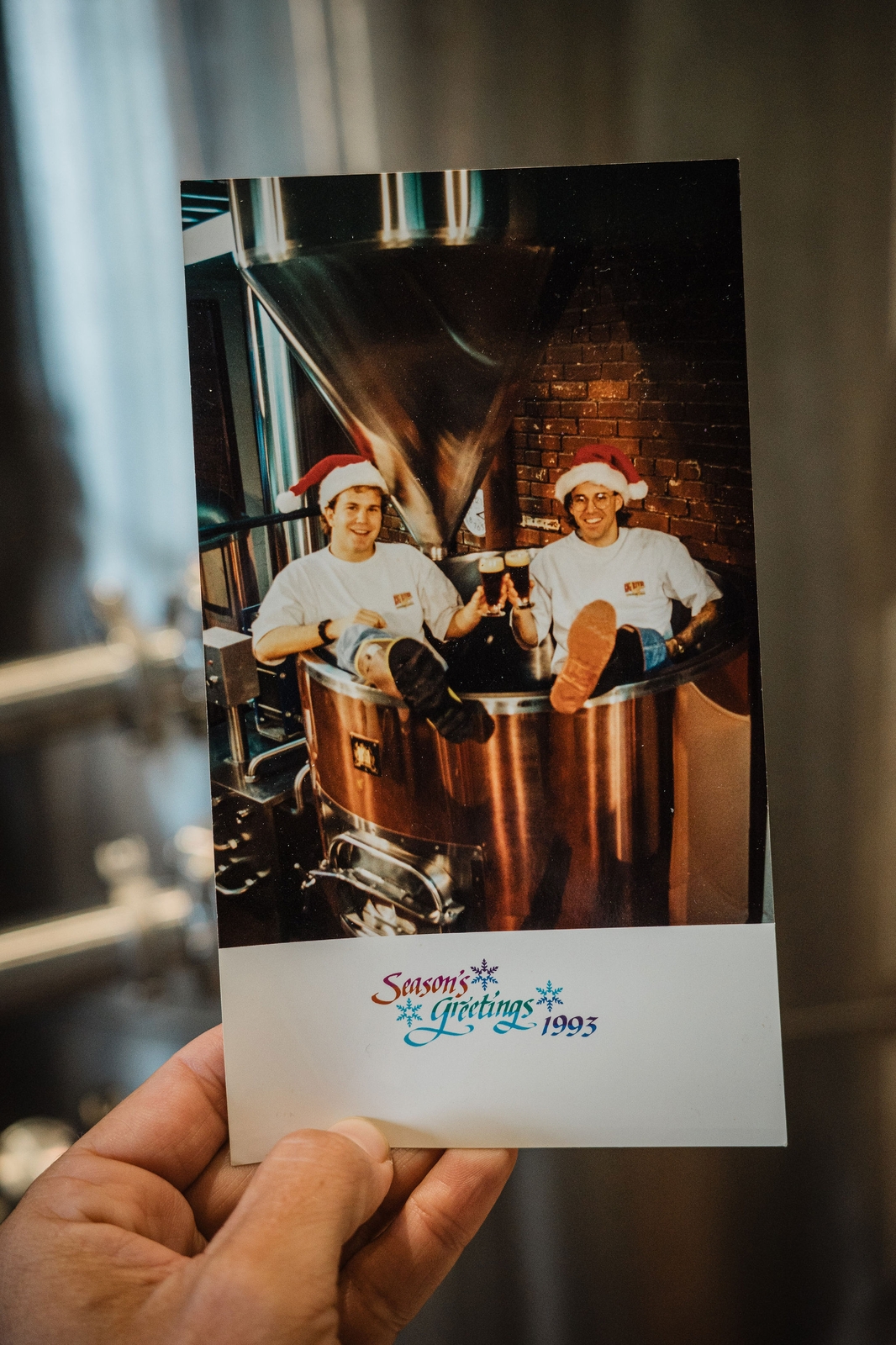
Something was gained, something also lost. Over time, Clay became the head brewer as Rob shifted into more management.
"It goes from really building your heart and soul in one or two small units into scaling," Rob said.
The original brewery soon became what Rob called "a human resource systems business."
"It's hard to keep other things - culture, passion, beverage quality, hospitality - in place."
He was losing the Third Place experience.
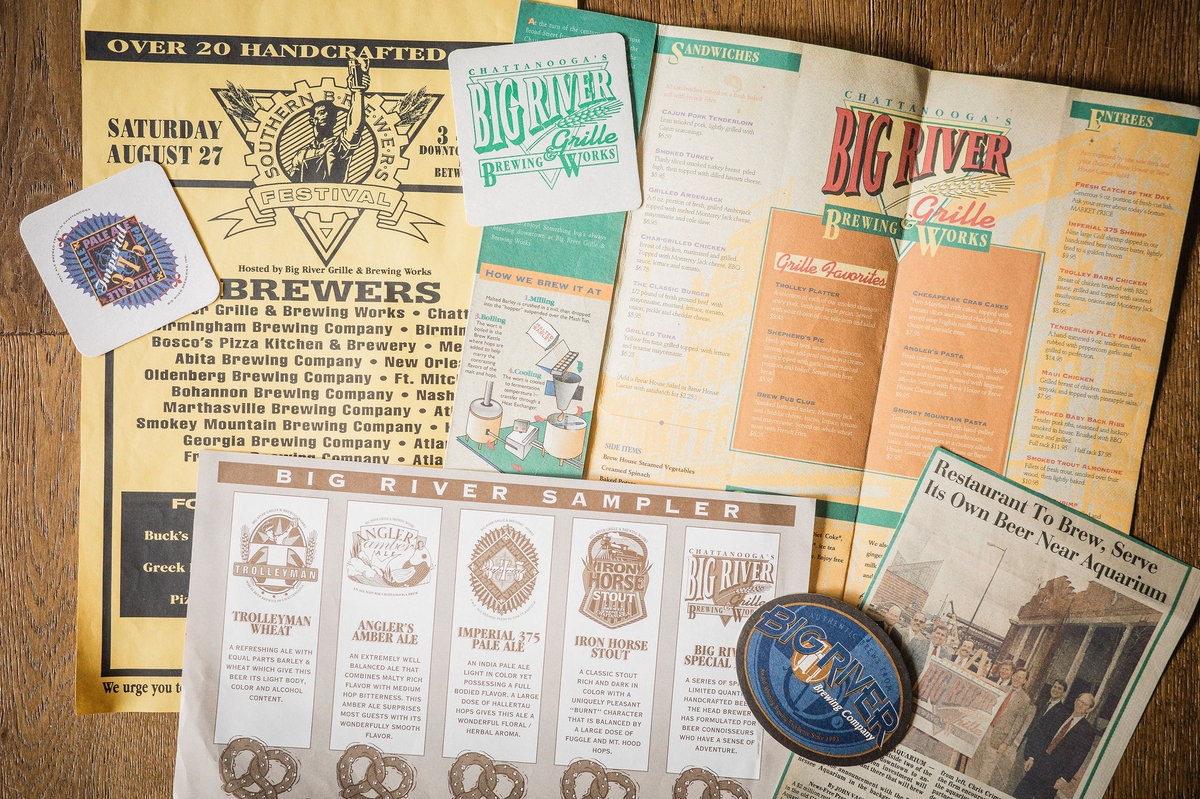
In 2006, Rob left to open Blue Plate: a riverfront restaurant that would source local — Aretha Frankensteins, Niedlov's, early Hoff & Pepper, Chattz Coffee — reminiscent of a neighborhood diner. So committed to freshness, Blue Plate didn't even own a microwave.
Blue Plate lasted 15 years, anchoring the riverfront as a restaurant that felt both hip and family-friendly.
In 2018, Clay and Rob began quietly discussing a new place. They even had a secret name.
"Project X," Clay said, smiling.
Both brothers were envisioning a new form of Third Place.
"We also just wanted to work together again," said Rob.
In 2021, Hello Monty — named after that eccentric lawyer and original street name — was born.
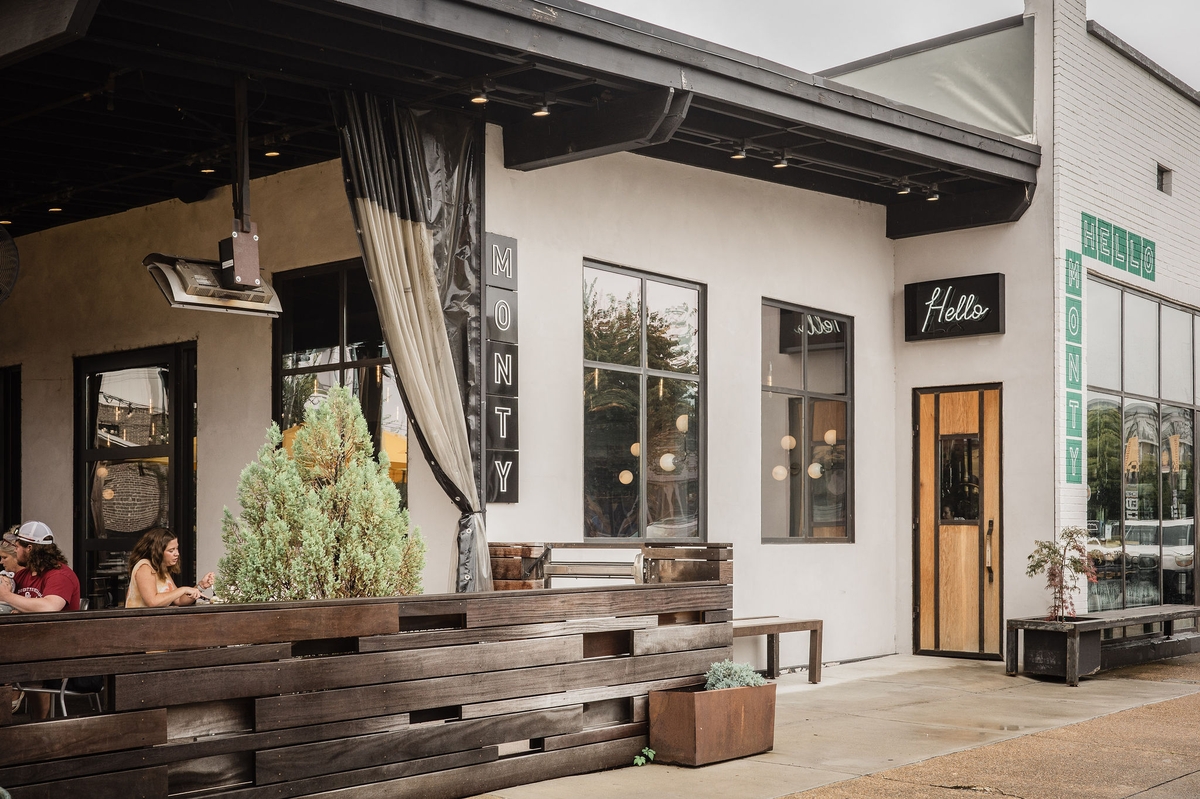
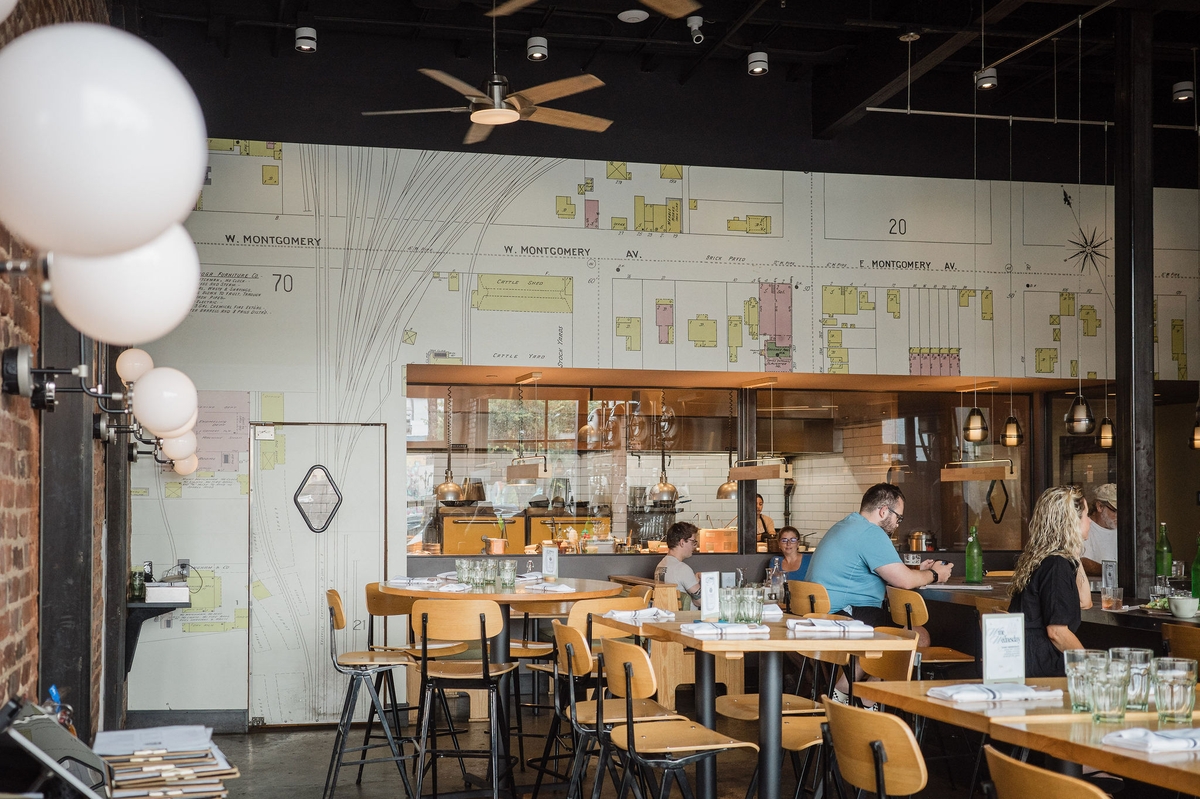
It is bar-forward: walk through the doors and the message is clear. The beautiful stainless steel horizontal tank design. The proof coils, not taps.
This is a place built on beer.
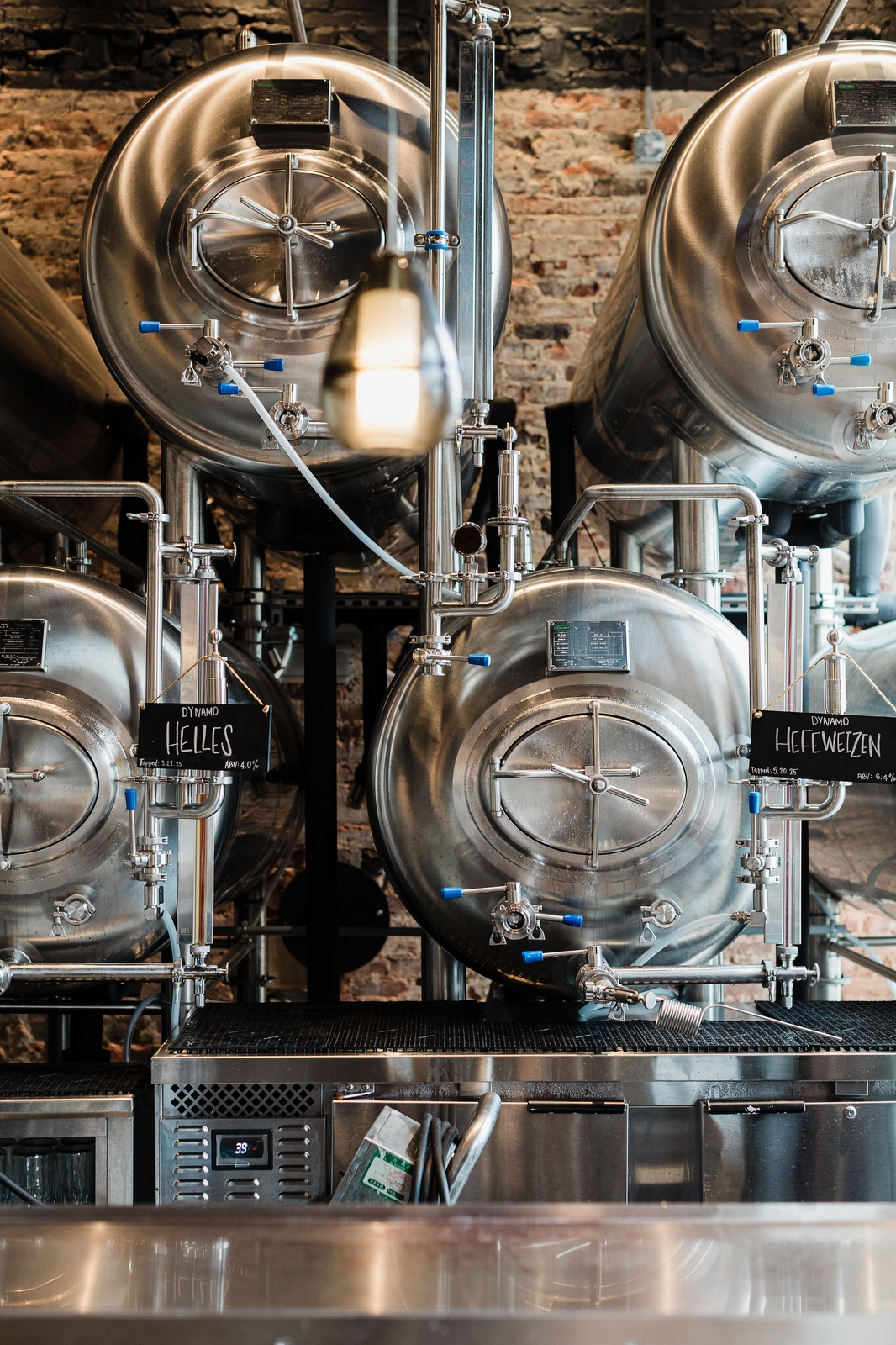
"Clay's the oldest commercial brewer in town," Rob said. "All the brewers from around the city come and see him.
"If I've heard it once, I've heard it a hundred times. People will come in and say: we were at Five Wits or Oddstory or Hutton & Smith and they said: you gotta go see Hello Monty and Dynamo and Clay."
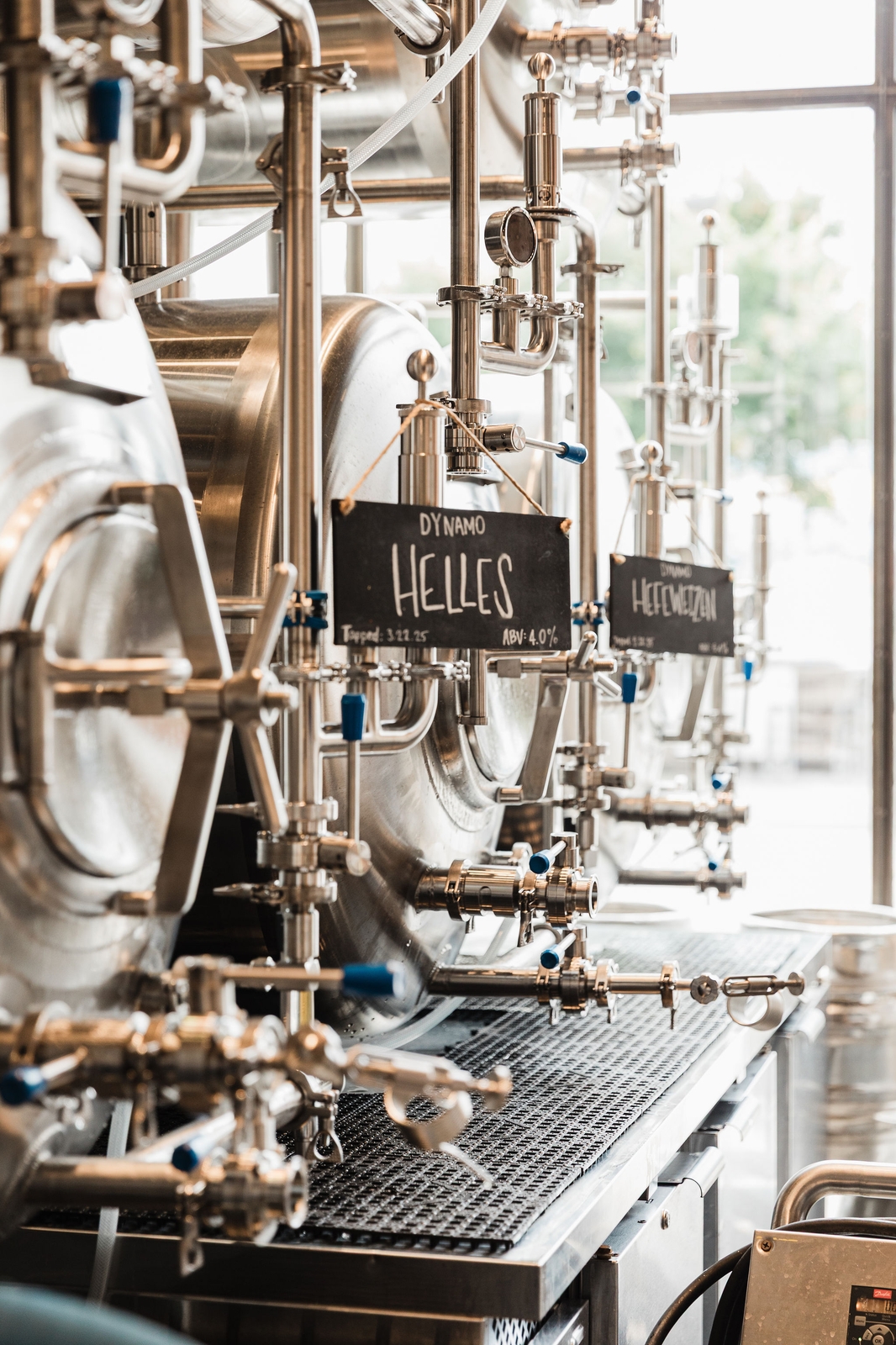
Dynamo was named with a nod towards the Dynamo of Dixie, the old nickname for Chattanooga.
"A dynamo is essentially a generator, an electrical generator. It's smaller in nature ... but powerful," Clay said.
Dynamo brews small-batch beers, poured straight from the tank. This was intentional. Nothing hidden. Beer for you, straight from the source.
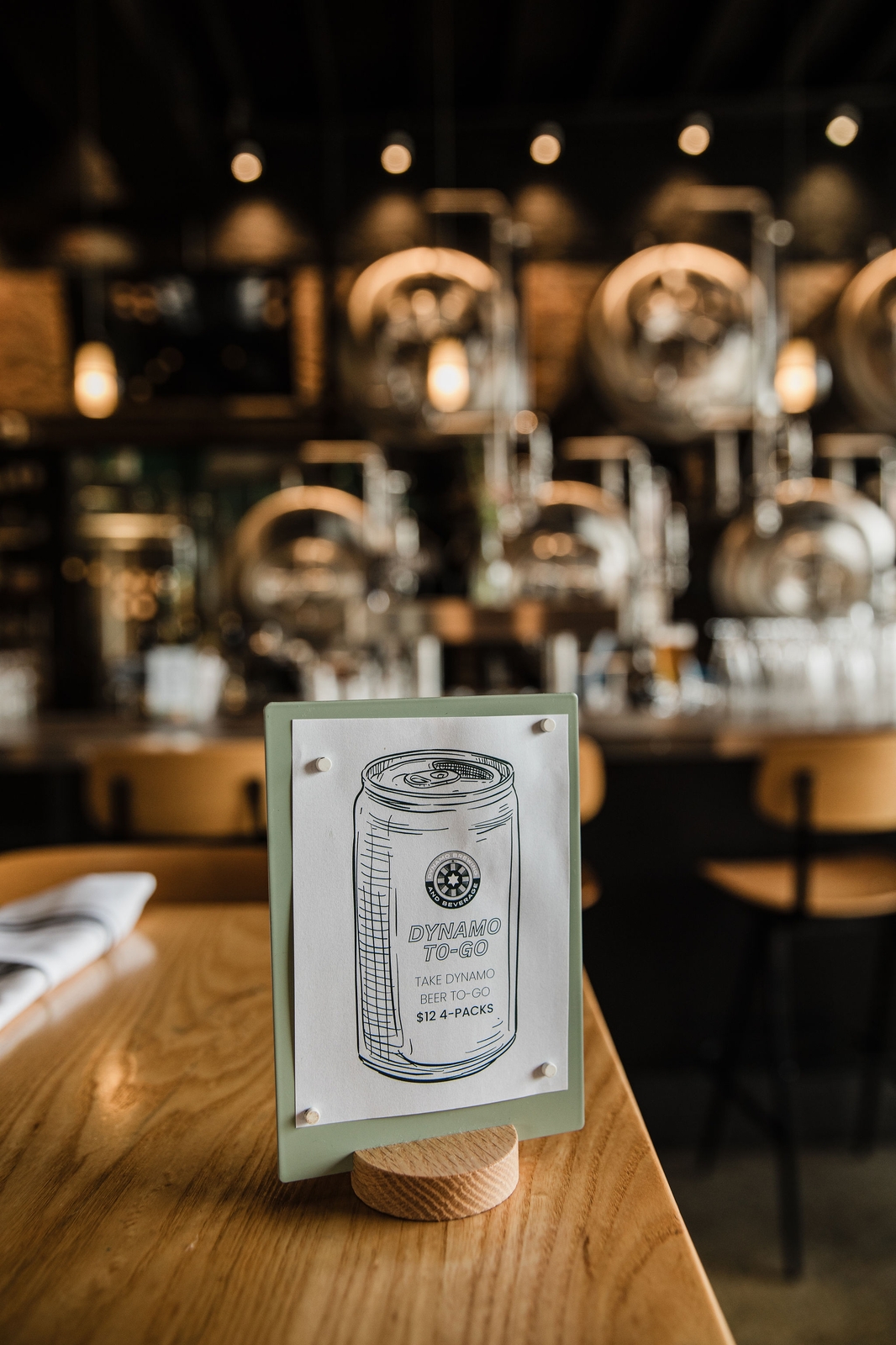
"The visual immediacy of the freshness," he said. "I want people to think: my gosh, they're pulling this beer from the tank for me."
There are no taps. Bartenders pour using proof coils, like the whirley-cue end of a cartoon pig, attached to the end of each horizontal tank. It's old-school, a throw-back to Munich beermasters who would walk among the casks, sampling, tasting.
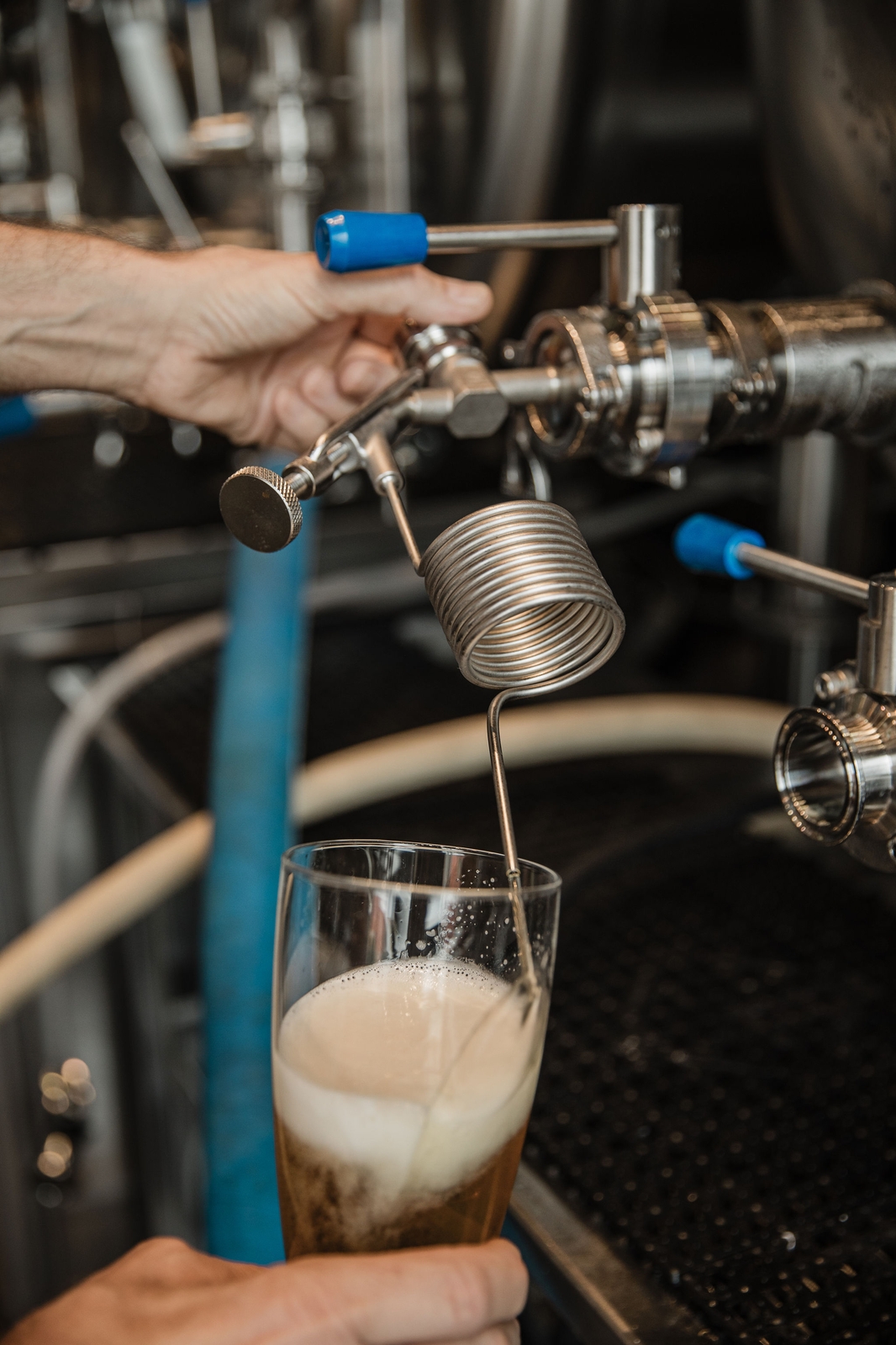
Along with beers on tap, Hello Monty brews a pair of cask-conditioned beer.
"These kegs are filled when beer is still live," he said. "It finishes the fermentation in the cask. This is what the early Brits drank before the 1950s."
There's no extra CO2, so the kegs aren't tapped, but pulled.
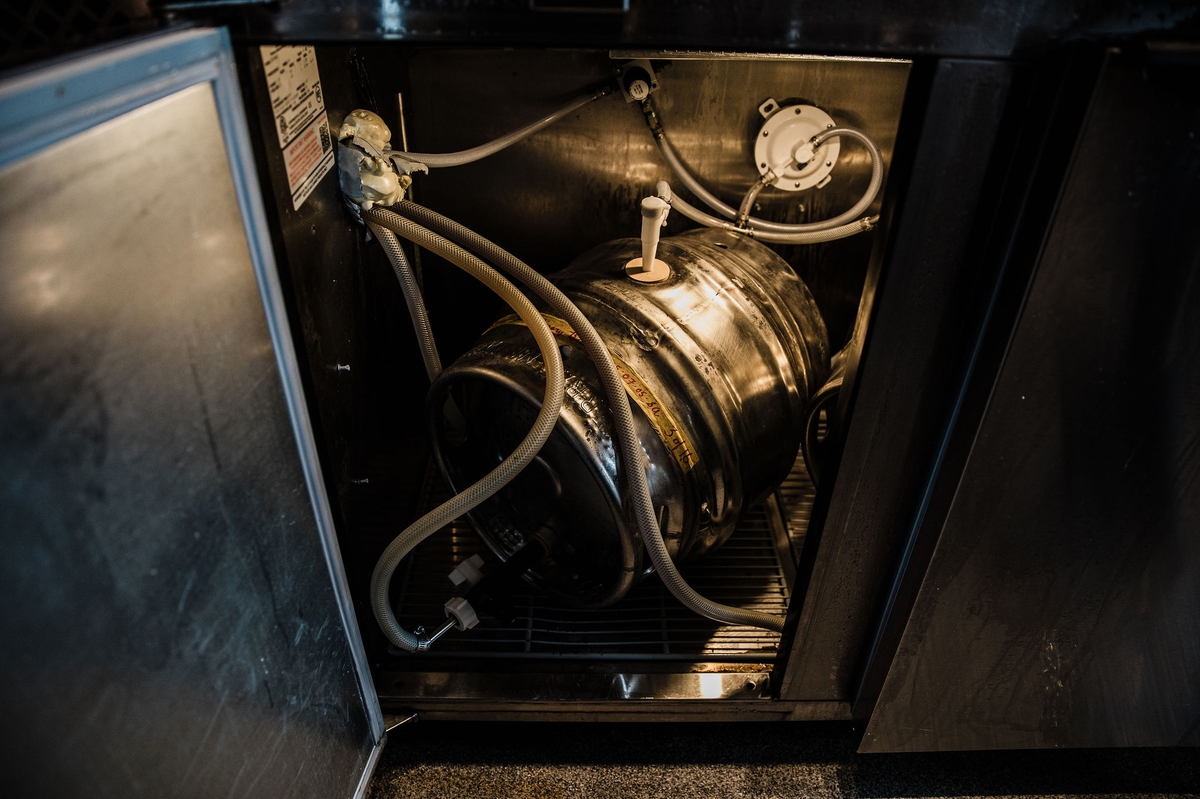
"I am pumping the beer, drawing the beer into the glass," he said.
Anyone else doing this?
"Not that I know of in Tennessee," he said.
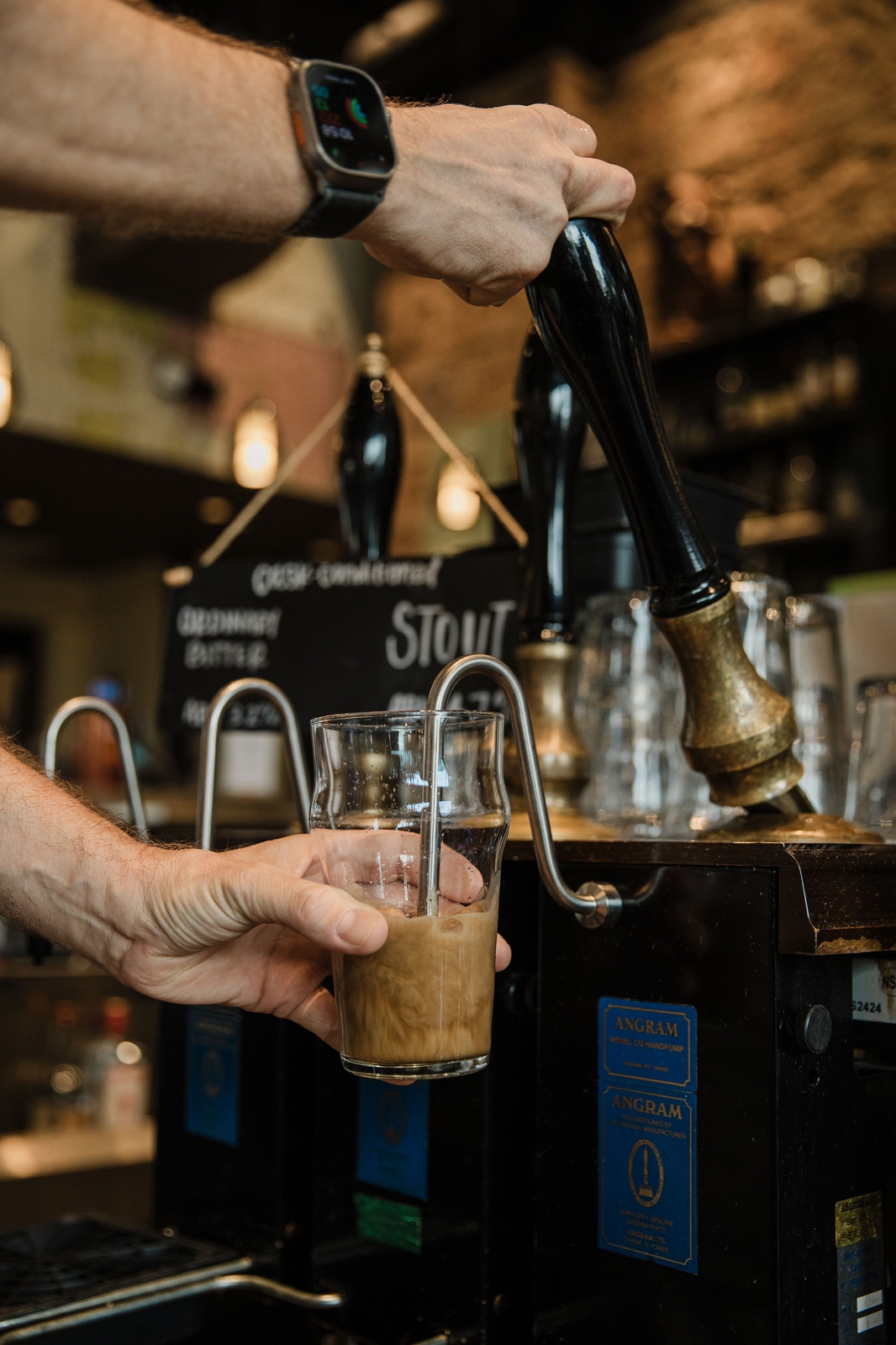
All these years later, with billions of beers brewed and sold, both Gentrys are reflective, still a tad unsure of what they've created.
Did you realize Big River's impact at the time?
"I wish we could have been more aware of that in the midst of it," Rob said.
"I look back on the days — if we had just slowed down a bit, taken it in a bit more."
Today, with a restaurant scene now crowded and varied, with a Chattanooga that barely resembles the one in 1993, they remain committed to the power of The Third Place.
"It's lofty. It's philosophical. But we're a business," said Clay. "Do we succeed in that?
"The jury's still out."
No, Clay. Respectfully, it's not.
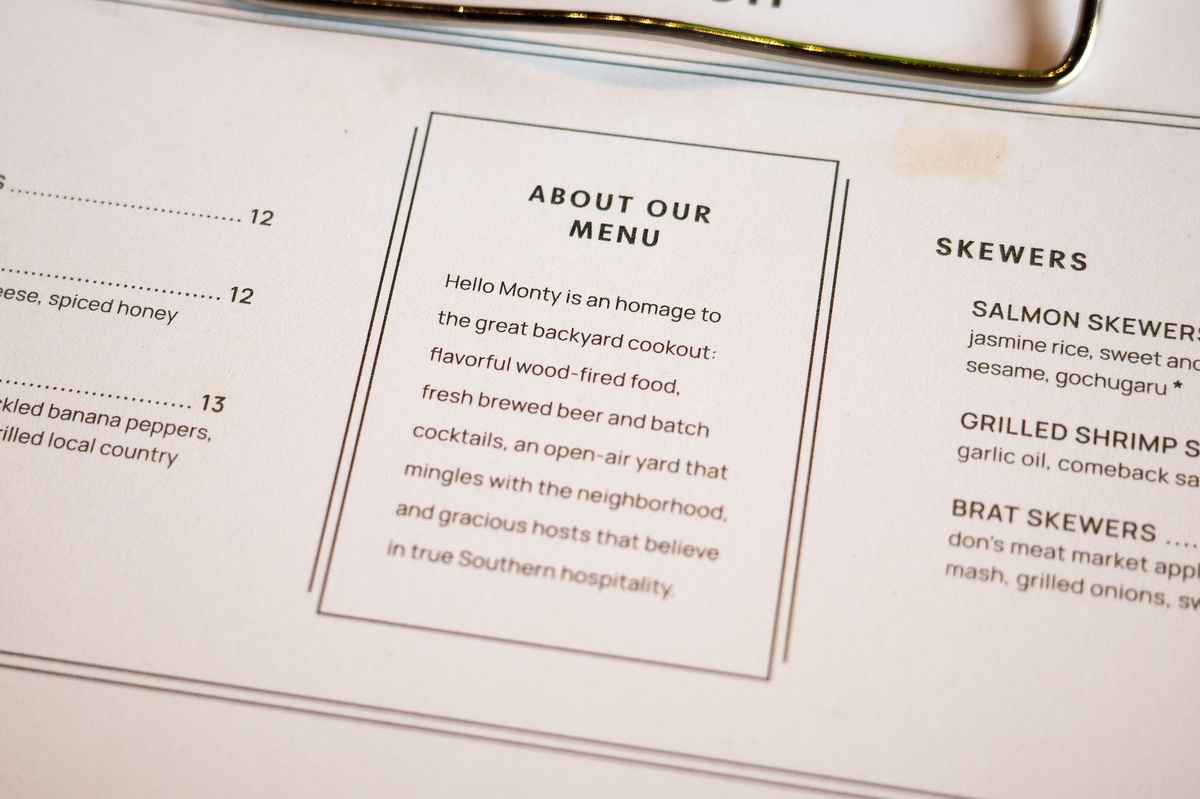
For many of us, Big River was a foundational experience, almost like a line of demarcation or way of seeing history: Chattanooga before-Big River versus Chattanooga after-Big River. We'd never experienced IPAs on tap, never tasted a draft stout brewed right before us. It had all been Coors and Miller and predictability.
But then came Big River.
And like a whole new universe, everything else followed.
And it tasted so damn Third Place good.
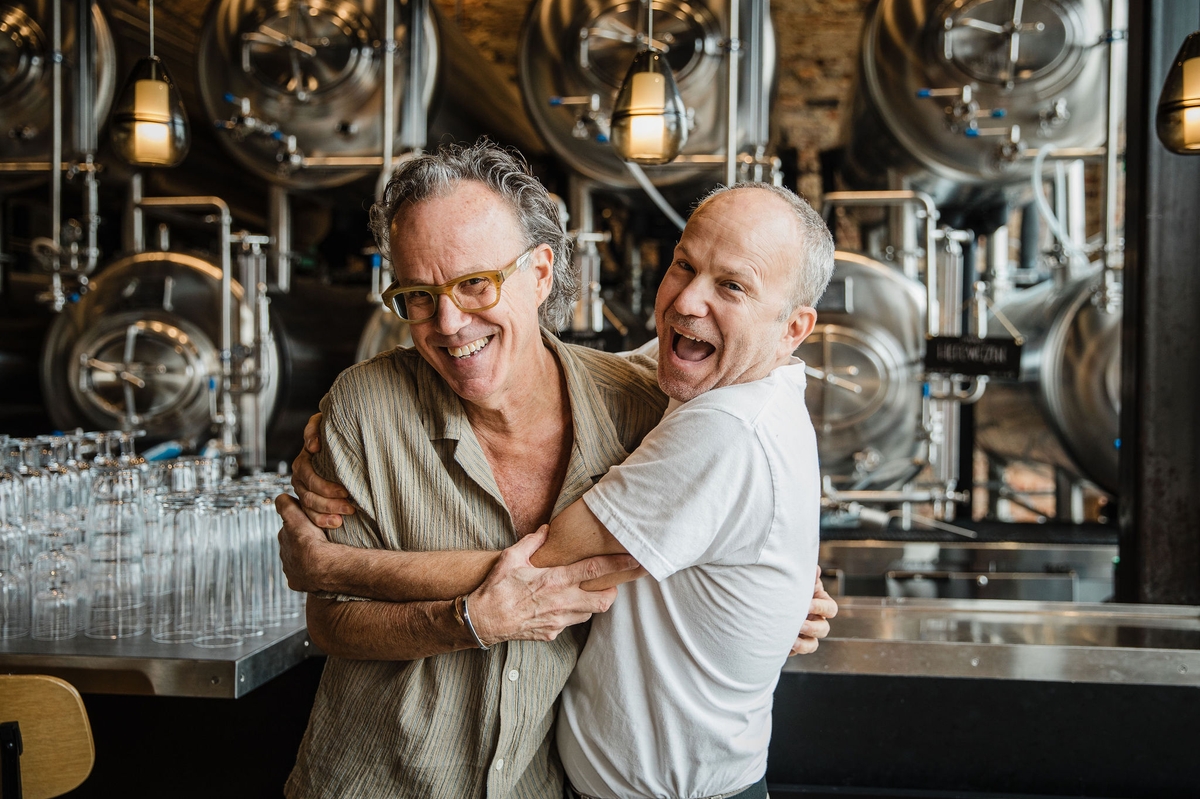
Story ideas, questions, feedback? Interested in partnering with us? Email: david@foodasaverb.com
This story is 100% human generated; no AI chatbot was used in the creation of this content.
In 2021, brothers Rob and Clay Gentry opened Hello Monty, a neighborhood restaurant serving "wood-fired American fare" that also houses Dynamo Brewing, which brews beers unlike any in Tennessee.

Their work was partially inspired by sociologist Ray Oldenburg, who wrote about the "vanishing Third Places."
The first place? Home. Second? Work.
But the Third Place is that precious gathering spot where informal community blooms. Think beer gardens in Germany, pubs in West Ham, bowling leagues in Hixson.

In the US, the Third Place is threatened. An over-dependency on roads and cars, a work-heavy culture, so many screens — you choose what to blame — all seem to reduce the places beautiful community can form.
So, Rob and Clay wanted to create a solution.
"Hello Monty," said Rob.

Their restaurant's on Main Street, which, a century ago, was called Montgomery Avenue, named after an eccentric trial lawyer who, as the story goes, believed that the universe would flow through Chattanooga.
Funny.
In a way, it did.
More than three decades ago, long before Hello Monty or that Third Place essay, Rob and Clay joined Tim Hennen to open a brewery that would ultimately transform our city's entire identity.
In September 1993 — 32 years ago today — Big River Grille opened in downtown Chattanooga.

Big River became the spark that created the modern Chattanooga universe.
Today's Chattanooga flows from their original brewery. Without a brewery, there is no Outdoor City vibe. No hip riverfront. Certainly no tourism.
Today, you can't swing a keg without hitting a Chattanooga brewery, but, at the time, a hometown brewery — the first since Prohibition — was as unimaginable as, say, an aquarium opening.
Back then, we were on the cusp-edge of so much. It took a kickstart to change our city's identity — from dirty air to National Park City. You must have beer to lubricate a journey like that.
Big River was the first man through the door.

And back then? Lots of folks were coming through the door.
"I remember looking out at the bar at night," said Rob, "so full you couldn't even see."
"We caught the tiger by the tail," Clay said.
"We were right at the tip of the spear for craft beer," said Rob.
Today, three decades later, some of us still goosebump over the names: Southern Flyer. Iron Horse. Sweet Magnolia Brown.
In the '90s, we'd never had beer like this.
Clay and Rob had tapped into a whole new universe.

It started years before: Rob had an idea. The All-American swimmer and '81 McCallie School graduate had gone to Univ. of South Carolina where he'd discovered a bar called Goat Feathers.
It was unlike any bar he'd ever seen.
"Guinness on draft. Bass Ale on draft. The only domestic was New Amsterdam," he remembers. "Back in the day, this was very, very unusual."
He'd flirted with the Olympics Trials, but then returned to Chattanooga, began home-brewing and boldly secured the rights to a company from way back when.
"Chattanooga Brewing Company," he said.
To timestamp this for context: in 1992, the Tennessee Aquarium had just opened. Easy Seafood wouldn't open for another 13 years.

A Canadian consulting group had visited, surveyed the scene, then wrote a letter suggesting Chattanooga was ripe for a brewery.
That letter was passed to someone who passed it to someone else who passed it to Rob.
He secured just over a $1 million in investments, but needed twice that amount. After a year of trying, he came empty, and returned the money.
The story could end here. Finding another $1 million for a brewery in a 20th century-town that had never experienced one?
Rob held onto the idea.
"That's when I met Tim Hennen," he said.
Tim's a longtime restaurateur in Chattanooga known for starting places that last. (Like Yesterday's. And Hennen's.) The pair caught a Delta to Denver, found the first brewery they could — a place called Wynkoop — and sat down. Or, tried to.
"The place was packed," Rob said. "Everybody was drinking beer."
Next morning, they woke up: let's go see another one.
After the third or fourth brewery, Tim looked at Rob.
"We've got to do this," he said.

Thanks to Prohibition-era laws, restaurants could either sell beer or brew it, but not both. Sympathetic legislators would change the law, but first, they needed a vision.
Investors returned, including the pioneering heavy-hitters who would guide the transformation of our riverfront: Jack Lupton, Jon Kinsey, Sen. Ward Crutchfield who led the legislative work in Nashville.
Big River Grill opened on Broad Street in the old trolley barn in September 1993. (Clay remembers it as September 7.)
Quickly, it was a hit.
Quickly, Rob realized:
"I needed a brewer," he said. "I needed help."

In the early '90s, Clay — Rob's younger brother by eight years — was working on an archeological dig in burial mounds in Alabama.
"I love being in the field, working with my hands, getting engaged," he said.
He came home, saw his brother up to his neck in hops, pouring more beer than he could brew.
"He was the first professional brewer since Prohibition," Clay said. "And he needed a lackey."
So, Clay pitched in.
"Next thing I know, I'm carrying bags of grain," he said.

It was demanding physically and mentally, like the archeological field, minus sedentary lab work. Clay loved it.
"On top of that? The joy of sitting down with friends to have a beer," he said. "It was pretty damn special."
Their early beers were British-inspired. The menu was groundbreaking.
Iron Horse Stout. ("We never changed that recipe.") Imperial Pale Ale. ("Our best-seller.") American Flyer.

And ... Bud Lite?
"We had several spirited debates," said Rob, "over whether to include Bud and Miller Lite."
Fearing Chattanoogans wouldn't come to Big River without a Big Name option, the team included Miller and Bud on the menu.
It wouldn't matter. Their craft beer was infectious.
In the mid '90s, Rob created the Southern Brewers' Festival. After the city closed the street at night, Rob used a measuring tape to mark off 10'x10' sections for each brewer.
"I consider Rob one of the unsung heroes of the early days of the riverfront district's resurgence," said friend Rob Taylor.
Soon, the call came: we want you to open a brewery in Nashville. Then, a brewery at Disney. (Yes, Disney.)

In 1999, Big River bought Gordon-Biersch, which incorporated a dining experience equal to the brewery.
Within 10 years, Rob and his partners were managing 14 breweries. Someone even suggested: we could do 50 of these.
"Your whole life changes," said Rob. "We felt like we were bulletproof."

Something was gained, something also lost. Over time, Clay became the head brewer as Rob shifted into more management.
"It goes from really building your heart and soul in one or two small units into scaling," Rob said.
The original brewery soon became what Rob called "a human resource systems business."
"It's hard to keep other things - culture, passion, beverage quality, hospitality - in place."
He was losing the Third Place experience.

In 2006, Rob left to open Blue Plate: a riverfront restaurant that would source local — Aretha Frankensteins, Niedlov's, early Hoff & Pepper, Chattz Coffee — reminiscent of a neighborhood diner. So committed to freshness, Blue Plate didn't even own a microwave.
Blue Plate lasted 15 years, anchoring the riverfront as a restaurant that felt both hip and family-friendly.
In 2018, Clay and Rob began quietly discussing a new place. They even had a secret name.
"Project X," Clay said, smiling.
Both brothers were envisioning a new form of Third Place.
"We also just wanted to work together again," said Rob.
In 2021, Hello Monty — named after that eccentric lawyer and original street name — was born.


It is bar-forward: walk through the doors and the message is clear. The beautiful stainless steel horizontal tank design. The proof coils, not taps.
This is a place built on beer.

"Clay's the oldest commercial brewer in town," Rob said. "All the brewers from around the city come and see him.
"If I've heard it once, I've heard it a hundred times. People will come in and say: we were at Five Wits or Oddstory or Hutton & Smith and they said: you gotta go see Hello Monty and Dynamo and Clay."

Dynamo was named with a nod towards the Dynamo of Dixie, the old nickname for Chattanooga.
"A dynamo is essentially a generator, an electrical generator. It's smaller in nature ... but powerful," Clay said.
Dynamo brews small-batch beers, poured straight from the tank. This was intentional. Nothing hidden. Beer for you, straight from the source.

"The visual immediacy of the freshness," he said. "I want people to think: my gosh, they're pulling this beer from the tank for me."
There are no taps. Bartenders pour using proof coils, like the whirley-cue end of a cartoon pig, attached to the end of each horizontal tank. It's old-school, a throw-back to Munich beermasters who would walk among the casks, sampling, tasting.

Along with beers on tap, Hello Monty brews a pair of cask-conditioned beer.
"These kegs are filled when beer is still live," he said. "It finishes the fermentation in the cask. This is what the early Brits drank before the 1950s."
There's no extra CO2, so the kegs aren't tapped, but pulled.

"I am pumping the beer, drawing the beer into the glass," he said.
Anyone else doing this?
"Not that I know of in Tennessee," he said.

All these years later, with billions of beers brewed and sold, both Gentrys are reflective, still a tad unsure of what they've created.
Did you realize Big River's impact at the time?
"I wish we could have been more aware of that in the midst of it," Rob said.
"I look back on the days — if we had just slowed down a bit, taken it in a bit more."
Today, with a restaurant scene now crowded and varied, with a Chattanooga that barely resembles the one in 1993, they remain committed to the power of The Third Place.
"It's lofty. It's philosophical. But we're a business," said Clay. "Do we succeed in that?
"The jury's still out."
No, Clay. Respectfully, it's not.

For many of us, Big River was a foundational experience, almost like a line of demarcation or way of seeing history: Chattanooga before-Big River versus Chattanooga after-Big River. We'd never experienced IPAs on tap, never tasted a draft stout brewed right before us. It had all been Coors and Miller and predictability.
But then came Big River.
And like a whole new universe, everything else followed.
And it tasted so damn Third Place good.

Story ideas, questions, feedback? Interested in partnering with us? Email: david@foodasaverb.com
This story is 100% human generated; no AI chatbot was used in the creation of this content.


